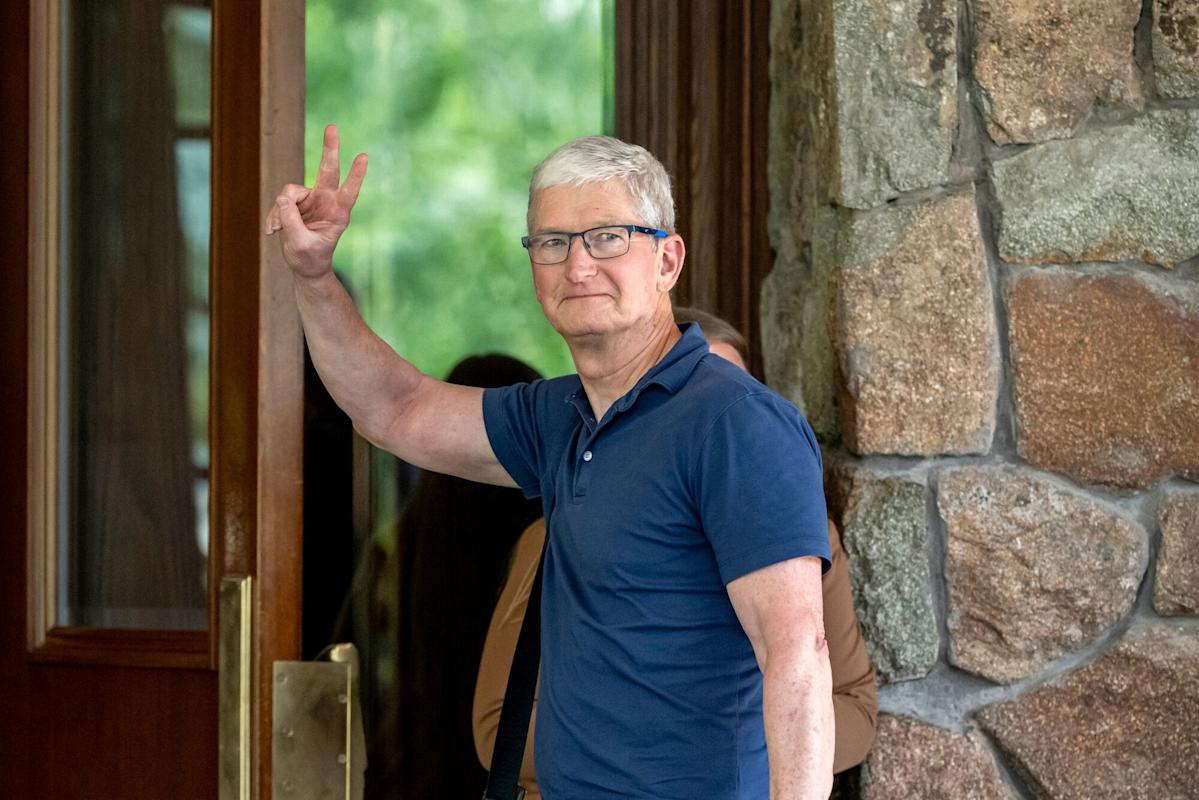Wall Street analysts are increasingly vocal in urging Apple to make a bold move in artificial intelligence by acquiring Perplexity, the rising AI-powered search engine that has gained rapid traction as a competitor to Google and Microsoft. But according to insiders, Apple is resisting the acquisition path. Instead, the company is focused on strengthening Siri, its long-standing but often-criticized digital assistant, in an effort to close the gap.
The decision has ignited a debate about whether Apple is missing a golden opportunity—or playing the long game in its own unique way.
Why Analysts Want Apple to Buy Perplexity
Perplexity has emerged as one of the hottest startups in the generative AI space, with a reputation for delivering quick, conversational answers to queries rather than traditional search results. Backed by venture funding and boasting impressive user growth, it has been positioned by some analysts as the “future of search.”
For Apple, which has historically lagged in AI compared to Google’s Gemini or OpenAI’s ChatGPT, acquiring Perplexity would provide an immediate boost. Analysts argue it would:
- Give Apple a credible rival to Google Search integrated into its ecosystem.
- Accelerate its AI roadmap by folding in Perplexity’s team and technology.
- Demonstrate leadership in AI, reassuring investors who worry Apple is falling behind its Big Tech peers.
“Apple needs to show conviction in AI, and a deal for Perplexity would do exactly that,” said one Wall Street research note. “Instead, we’re watching them try to retrofit Siri, which has been playing catch-up for a decade.”
Apple’s Counterargument: Siri Isn’t Done Yet
Despite criticism, Apple executives are reportedly reluctant to cede ground on Siri. Insiders say the company views Siri not as a failed product, but as an underdeveloped one with enormous potential if paired with new AI capabilities.
The company is investing heavily in upgrading Siri’s natural language understanding, personalization, and integration across its ecosystem of devices. With Apple’s emphasis on user privacy, engineers are also working to ensure that future iterations of Siri process more queries directly on-device, minimizing reliance on cloud servers.
An Apple source told reporters: “Siri is already on a billion devices. It’s not about starting from scratch—it’s about unlocking what’s already there.”
The Perplexity vs. Siri Question
The contrast between Perplexity and Siri underscores the dilemma facing Apple:
- Perplexity is nimble, fresh, and rapidly innovating—an attractive acquisition target.
- Siri is entrenched, widely used, but also criticized as outdated.
Apple appears to believe that Siri’s ubiquity is a greater long-term asset than acquiring yet another AI startup. By embedding generative AI directly into Siri, Apple could scale innovations instantly across hundreds of millions of iPhones, iPads, and Macs.
Investor Frustration Is Growing
Wall Street isn’t convinced. Apple’s stock has underperformed compared to rivals like Microsoft and Nvidia, which have been riding the AI wave. Investors are hungry for a clear AI strategy—and fast.
Some analysts fear that Apple’s incrementalist approach will leave it permanently behind competitors who are aggressively deploying AI at scale. “Apple has the balance sheet to buy game-changing assets,” one analyst noted. “Instead, it looks like they’re content tweaking Siri while the world races ahead.”
Apple’s Playbook: Patience and Control
Apple’s reluctance to make blockbuster acquisitions is nothing new. Historically, the company has preferred small, targeted purchases that it can integrate quietly—such as its acquisition of Shazam for music recognition or AuthenTec for fingerprint sensors.
Rather than overpay for hype, Apple tends to wait until it can develop proprietary solutions that align with its brand, ecosystem, and privacy-first philosophy. The Siri overhaul appears to be consistent with that approach.
The Stakes Couldn’t Be Higher
With AI reshaping how people interact with technology, Apple faces a pivotal moment. If Siri’s next iteration impresses, Apple could reassert itself as a leader in consumer-facing AI. If not, critics may see it as further evidence that Apple is trailing behind in the AI revolution.
Meanwhile, Perplexity continues to grow—and with Microsoft and Google in the AI search race, the startup may yet become a major acquisition target, just not by Apple.
Conclusion: Apple Bets on Siri Over Shopping Spree
The debate over whether Apple should buy Perplexity is a microcosm of a larger question: should Apple leapfrog into AI dominance through acquisitions, or double down on what it already owns?
For now, Cupertino seems confident in the latter approach. The question is whether investors, analysts, and users will have the patience to wait for Siri’s renaissance—or whether they’ll view Apple’s strategy as another missed opportunity in the high-stakes AI era.







